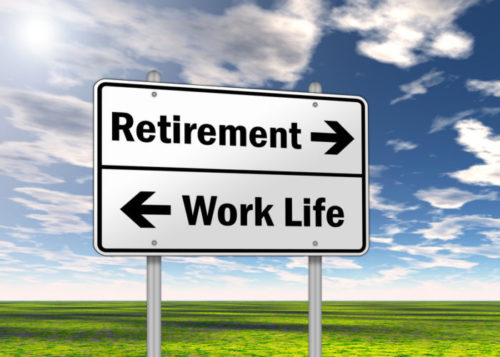If you know you don’t want to continue working full time for the rest of your life, it’s important to prepare for retirement. To set yourself up for retirement life, you may need to commit to putting away money over the course of several working decades.
While most Americans know the importance of saving money so they can stop working when they hit retirement age, it doesn’t make saving any easier. A report from the U.S. Federal Reserve found that 26% of adults who haven’t yet retired don’t have any money put aside.
It’s always a good decision to commit to a retirement savings plan as soon as possible. Even if you haven’t saved, it’s still possible to retire, and even prepare to retire early if you commit to careful planning and meticulous budgeting. Learn about some of the options you have if you plan to retire without sufficient savings.
Table of Contents
1. Work During Retirement
Working while you’re retired may seem to defeat the purpose but it’s a great way to ensure you’re financially stable. If you want to retire early but don’t have sufficient savings, working a part-time job or one that isn’t as stressful or demanding as your career was is an option to earn income.
If you had a high-paying job while you were in the workforce, such as a doctor, lawyer, or CEO, you may be accustomed to a certain amount of disposable income. In retirement, your income is usually lower, especially if you haven’t been diligently saving. Having a source of income in retirement, such as a part-time job or a lower-paying job that you enjoy, will help supplement this income and ensure you can maintain your lifestyle while enjoying your downtime.
There are pros and cons to working while you’re retired, so it’s important to only consider opportunities you’ll enjoy. Think about your hobbies and how you like to spend your time when deciding on the job you should take in retirement. When you engage in an activity you’re passionate about, such as teaching children or selling real estate, you’re more likely to enjoy your time working.
2. Use Your Social Security Income
As baby boomers approach retirement age, they begin to consider different sources of income that could help them live comfortably when they stop working. If your work record qualifies you to receive Social Security, this supplemental income will help you cover some of your monthly expenses, making it easier to retire comfortably.
Social Security is a federal retirement benefits program you contribute to when working for an employer that takes Social Security taxes from your paycheck. The amount of taxes taken from your income and the amount of benefits you receive in retirement depend on the income you earn and how long you paid into the system. You must be 62 or older and have worked at least 10 years while paying into the system to be eligible to receive payments from Social Security.
While Social Security income may help you pay for certain expenses after you retire, it’s not meant to be your only source of income when you stop working. Social Security payments are generally not enough monthly income to cover all your living expenses and allow you to live comfortably in retirement. If you don’t have a retirement savings plan in place, it’s important to have other income sources in addition to Social Security income.
3. Obtain a Pension
Your employer may offer you a pension plan for working a certain number of years at the same job. Not all professions are associated with pensions and they usually only apply to:
- Teachers.
- Firefighters.
- State or federal government workers.
- Police officers.
- Military personnel.
However, some private organizations still offer pensions to workers who qualify. If you’re lucky enough to qualify for a pension plan, when you retire, you automatically begin to receive a certain guaranteed amount of monthly income throughout your retirement. A pension plan is different from an IRA or 401(k) because it’s guaranteed. Your pension doesn’t rely on the market or the amount you contributed to it, making it a reliable source of retirement income.
Depending on the size of your pension and your expenses, it may eliminate the need to save for retirement throughout your working years. The amount you receive each month depends on how long you worked and the salary you earned while working. The higher the salary and the longer you work, the more you’ll receive in pension payments each month.
If you want to secure a pension plan, you’ll need to plan your career accordingly. Consider a government job or profession that’s well known for offering a pension. To qualify, you must commit to the job for the long term, especially if you want a sizable payment each month after you retire.
4. Retire Somewhere Affordable
If you don’t have a lot of savings but want to focus on retirement, your expenses are a key component to staying afloat financially. Retiring in a location that’s affordable may make all the difference in how far your money goes each month.
The best states to retire in have low taxes on retirement income and property. They also provide a low cost of living and affordable healthcare costs. By staying away from the worst states to retire in, you’ll ensure you don’t pay too much in taxes and can spend your retirement income covering other essential living expenses.
When you keep your living accommodation expenses modest, your retirement income stretches farther. Choosing a location that’s affordable may allow you to obtain a higher quality of life since you’ll save money on taxes, healthcare, and other essential costs.
5. Pay Off Your Debts
Outstanding debt may be what forces you to push off retirement. When your paycheck is going to current living expenses and to pay off debt, there’s nothing left to save for retirement.
While you’re still earning an income from your full-time job, address the debt you have as soon as possible. The sooner you become debt-free, the sooner you can begin to put away money for retirement.
If you go into retirement carrying debt, you’ll find it harder to cover your living expenses. You’re likely to live on a fixed income in retirement, making it hard to pay off debt fast while still paying for other necessities. Your savings plan should include paying off your debt so you can enjoy your retirement years without the stress of paying off debt.
6. Reduce Your Spending
To begin saving money for retirement, you must earn more income than you spend. Since increasing your income with a full-time job may be tough, reducing your spending and expenses is the best way to ensure you have room in your budget to start saving.
When you do retire, it’s important to continue working on reducing your expenses as much as possible. When you have fewer expenses and don’t spend as much money, your retirement money lasts longer and you’ll find you don’t need as much income. While you should enjoy your retirement years, limiting your spending while retired will ensure you can remain retired and financially stable.
Even if you don’t have an aggressive savings plan in place for retirement, you may still be able to retire comfortably. When you remain open to different retirement income options, it’s more likely that you can stop working and enjoy retired life early.
Image Source: https://depositphotos.com/





